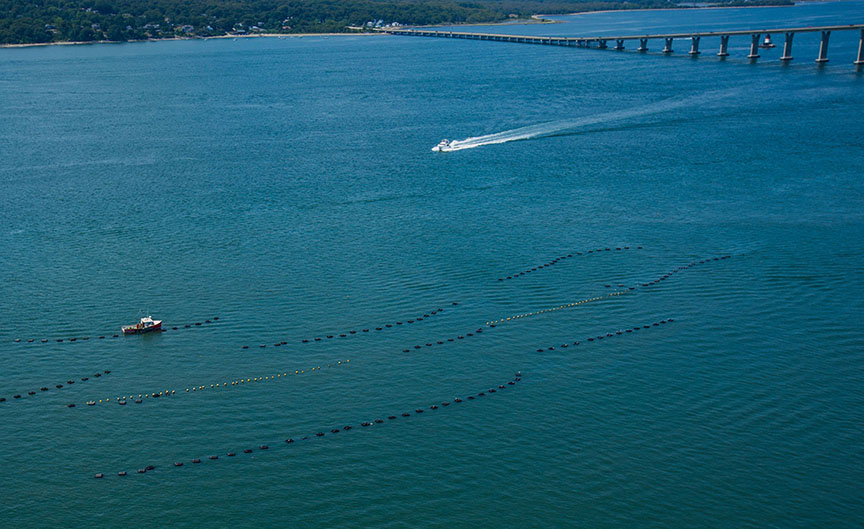Relish Rhody 2.0 to focus on inequity, infrastructure
Dive into the world of agriculture through RI food safety summit. PHOTO CREDIT: Ayla Fox
The University of Rhode Island held their sixth annual Rhode Island Food System Summit on Thursday, focusing on food innovation through agriculture and aquaculture operations.
Farmers, fishermen, government officials, philanthropists and academia were all brought together under one roof — or rather, one screen.
“We saw a need out there where there was no way for all of the people in the food ecosystem to get together under one roof,” the Executive Director of the Business Engagement Center, Katharine Hazard Flynn, said.
After seeing the need for unity, URI created the Rhode Island Food System Summit. The summit was orchestrated to tie into the state of Rhode Island’s food strategy, known as Relish Rhody, by focusing on a different part of the strategy each year, according to Flynn.
For example, this year’s theme of food innovation tied into the strategy’s need for growth in the food industries in Rhode Island.
This year, Julianne Stelmaszyk, the Director of Food Strategy for the Rhode Island Commerce Corporation, highlighted how the food strategy has created achievements in the food industries since its commencement.
“Over the last five years, the state has invested more than 25 million dollars in our food, farm and fish businesses,” Stelmaszyk said.
Stelmaszyk also announced that Relish Rhody ‘ will be updated to Relish Rhody 2.0 which will focus on more investment in food infrastructure, improve land access and address racial inequity.
URI has used the summit to showcase programs that it supports in food innovation. For example, it highlighted Navindra Seeram’s research on medicinal plants and food through his position as the department chair of Biomedical and Pharmaceutical Sciences.
“We take a really holistic view at looking at foods,” Seeram said. “We look at what will give you a health benefit besides just basic nutrition when you consume the food.”
URI alumni such as Perry Raso, the owner of the Matunuck Oyster Farm, were also involved in the discussions. He discussed his new smart hatchery which will use new technology to grow shellfish.
“I’m excited about this because it will not only provide a place for the growing number of oyster farmers in Rhode Island to purchase seed as well as supply my own farm with seed,” Raso said.
The focuses of the summit are picked each year by a group of people involved in the food ecosystem based on what seems important in the world around them at the time. Food insecurity was chosen as the subject for 2021 after it was revealed as a massive problem after COVID-19.
The summit had to switch to a virtual format because of COVID-19 but this has actually been beneficial for the summit according to Flynn.
“In [COVID-19] , we’ve been able to have speakers from Cornell, Jacksonhole, Boston and bring in speakers from a wider audience that can talk about expertise that they have,” Flynn said.
Flynn also added that the engagement with the summit, such as the registration numbers, had grown since going virtual.
After the initial summit, surveys are sent out to the participants and viewers which helps decide what topics to highlight throughout the rest of the spring in follow-up sessions.
The issue of food insecurity will continue to be highlighted this fall through the 2022 Honors Colloquium series, “Just Good Food.”





